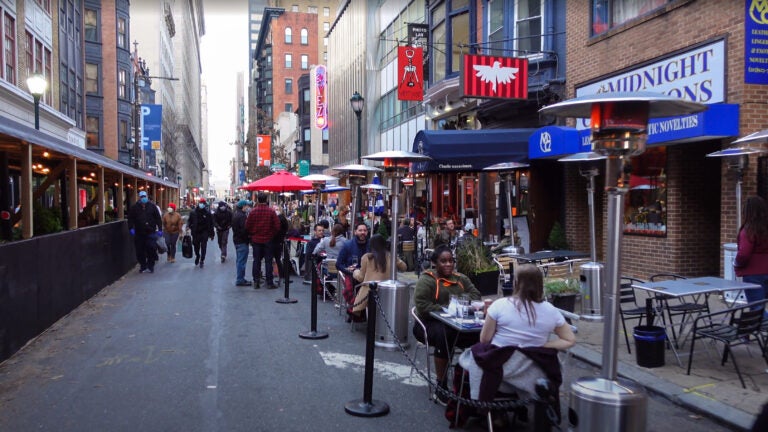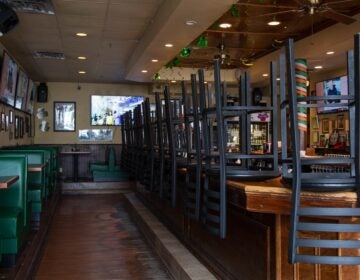Restaurants lose court bid against Pa. indoor dining ban
The decision Wednesday came as Wolf asks state lawmakers to approve $145 million for hard-hit businesses, restaurants and bars in particular.

Outdoor dining in Philadelphia, November 2020. (Mark Henninger/Imagic Digital)
A federal judge in Pennsylvania has rejected a bid to block one of Gov. Tom Wolf’s latest orders to try to stem the spread of the coronavirus, a three-week shutdown of indoor dining at restaurants through Jan. 4.
The decision Wednesday came as Wolf asks state lawmakers to approve $145 million for hard-hit businesses, restaurants and bars in particular, while a growing number of restaurants are defying Wolf’s shutdown order, and being cited or even closed for it.
The daily totals of new reported infections in Pennsylvania have leveled in the past couple weeks, although hospitalizations continue to climb and the Department of Health on Thursday reported one of the state’s highest daily totals for coronavirus-related deaths at 276.
In his order, U.S. District Judge Christopher Conner in Harrisburg denied the petition filed by two restaurant owners and a Hershey-area restaurant trade association that complained that the order violates their constitutional rights to equal protection.
Conner wrote that Wolf’s order was “sufficiently tethered to the stated public-health objectives” and pointed to case law that largely has guided federal court decisions in challenges to coronavirus-related shutdowns, saying individual rights during a public-health emergency may take a back seat to the safety of the general public.
The plaintiffs’ belief that there is “no material difference between dining and non-dining establishments is simply wrong,” Conner wrote, given the need to remove masks when eating or drinking and the closer and more sustained interactions at restaurants.
The restaurant plaintiffs also offered no meaningful challenge to scientific conclusions that masking is an effective mitigation measure, Conner wrote, and the state has no obligation to meet the defendants’ demand to produce mathematically precise data to back up the shutdown order.
Even if it did, the data “arguably support defendants’ decision to temporarily suspend indoor dining,” Conner wrote.
WHYY is your source for fact-based, in-depth journalism and information. As a nonprofit organization, we rely on financial support from readers like you. Please give today.




![CoronavirusPandemic_1024x512[1]](https://whyy.org/wp-content/uploads/2020/03/CoronavirusPandemic_1024x5121-300x150.jpg)


